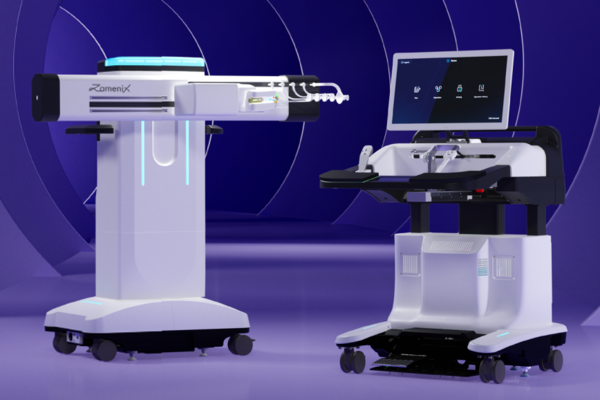Roen Surgical, a surgical robotics platform company, said Thursday that it has supplied its AI-based kidney stone–removal surgical robot, Zamenix, to the robotic surgery training center at Seoul National University Hospital (SNUH).

SNUH recently opened the center to advance education and the spread of minimally invasive surgery using AI and robotic technologies. The facility aims to become a global hub for medical technology by offering hands-on training opportunities with various surgical robots for surgeons, residents, and international medical professionals.
To mark the center’s opening, a hands-on robotic surgery training program using Zamenix will officially begin on Nov. 20. The program is designed for urologists, residents, fellows, and surgical nurses, enabling participants to handle robot-linked flexible endoscopes directly in simulated clinical environments.
Until now, the center has primarily introduced imported systems such as the da Vinci robot and Medtronic’s Hugo platform—making Zamenix the only Korean-developed device installed so far.
Professor Cho Sung-yong, Head of the Stone-Endourology Center at SNUH, said, “Roen Surgical’s Zamenix is a globally competitive product in the field of urinary stone treatment, particularly excelling in precision and efficiency for endoluminal surgeries.” He added that the introduction of Zamenix allows SNUH to offer diverse, clinically applicable surgical training scenarios to visiting medical professionals from Indonesia, Thailand, and the Middle East, alongside existing laparoscopic and console-based systems.
Roen Surgical said it will continue building educational platforms to strengthen the surgical capabilities of Korean urology specialists while accelerating R&D to expand automation and enable future remote surgery applications.
Zamenix removes kidney stones by navigating a miniature endoscope through the ureter without an incision. It incorporates AI for respiratory compensation, endoscope path regeneration, and stone size guidance, enhancing surgical precision, patient safety, and user convenience. The device was designated Korea’s 17th Innovative Medical Device in 2021.
In a confirmatory clinical study conducted in 2022 at SNUH and Severance Hospital, Zamenix demonstrated a 93.5 percent stone removal rate and a 6.5 percent mild complication rate among 46 patients requiring retrograde intrarenal surgery (RIRS). A larger innovative medical technology trial is underway in 232 patients at Samsung Medical Center, Yeungnam University Hospital, Kyungpook National University Hospital, Pusan National University Yangsan Hospital, and Korea University Anam Hospital.
Related articles
- Roen Surgical partners with UC San Diego to advance robotic kidney stone surgery
- Roen Surgical's AI surgery robot tackles growing kidney stone cases in Ansan
- Preclinical study using Roen Surgical's Zamenix robot wins best paper at UAA 2025
- Roen Surgical showcases AI-powered kidney stone surgery robot in US debut
- Roen Surgical begins recruiting clinical patients for kidney stone surgery robot Zamenix
- Korea University Anam Hospital adopts Roen Surgical’s AI-powered kidney stone surgery robot
- How Roen Surgical's first-in-class robotic system, Zamenix, enhances kidney stone surgery
- Urologists warn government’s specimen test reforms could force clinic closures

